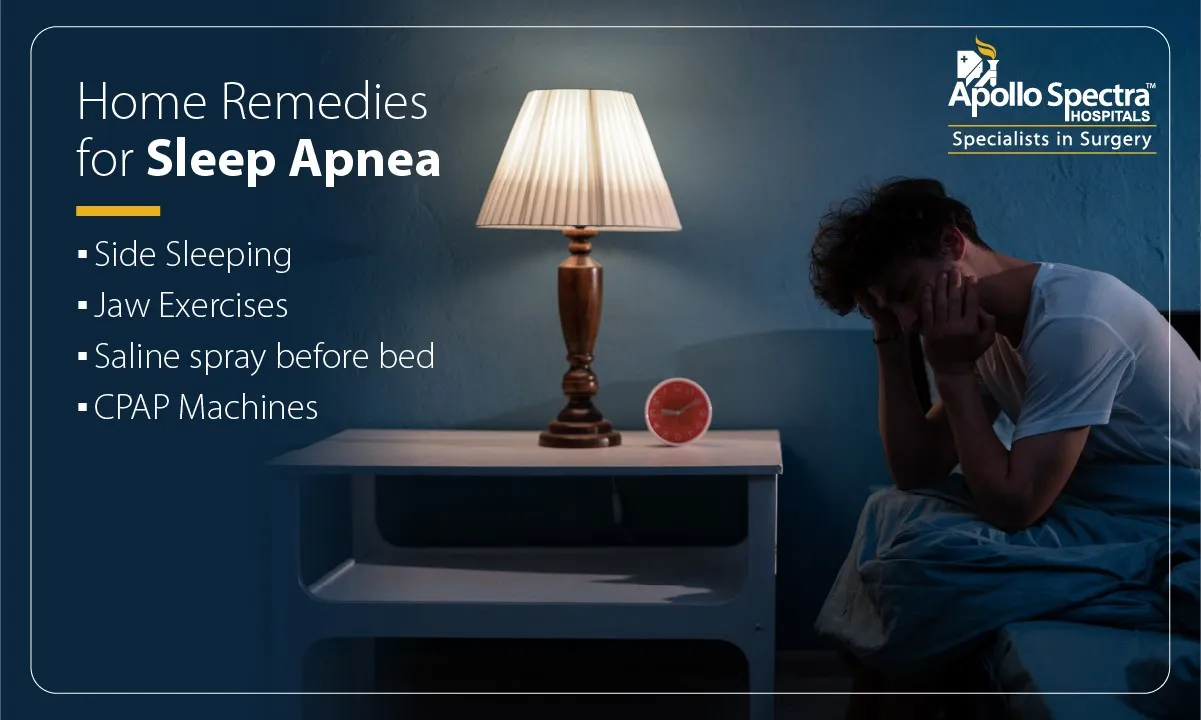7 Simple Home Remedies for Sleep Apnea
November 27, 2024
Let’s talk about sleep apnea—a not-so-fun bedtime companion that affects millions worldwide. It’s that pesky condition where your airway decides to play peek-a-boo while you’re trying to rest, causing snoring, gasping, and a night full of interrupted sleep.
But here’s the good news: you don’t always need a machine or surgery to tackle sleep apnea. With a few lifestyle changes and some smart hacks, you can manage it naturally and enjoy a better night’s sleep. So, grab your comfy pillow and let’s dive into these simple, home-friendly remedies for sleep apnea.
1. Switch to Side Sleeping: Your Airway Will Thank You
Sleeping on your back might feel like the ultimate chill pose, but for people with sleep apnea, it’s a no-go. When you’re on your back, gravity pulls everything (including your tongue) toward your throat, making it harder to breathe.
Switching to your side can work wonders in keeping your airway open. It’s like giving your throat a little extra room to breathe—literally!
Quick Hack: If you keep rolling back to your old habits, use a body pillow or sew a tennis ball into the back of your pajama top (yep, it works!) to stay on your side.
2. Shed a Few Pounds: Slim Down for Better Zzz’s
Here’s the deal: carrying extra weight, especially around your neck, puts added pressure on your airway. Losing even a small amount of weight can reduce the frequency of apnea episodes and help you sleep better.
Not to mention, weight loss isn’t just great for sleep—it’s a win for your heart, energy levels, and overall health.
Start Small: No need to jump into marathon training. Start with a brisk walk, swap out processed snacks for fresh fruits, and watch your health (and sleep) improve.
3. Clear Those Nasal Passages: Breathe Easy
Got a stuffy nose or chronic nasal congestion? That could be making your sleep apnea worse. Keeping your nasal passages clear is a game-changer for better airflow and fewer snoring symphonies.
Try These Quick Fixes:
- Use a saline spray before bed.
- Take a steamy shower to open up your sinuses.
- Manage allergies with medication or air purifiers to keep your bedroom allergen-free.
Breathing better means sleeping better, so don’t underestimate the power of clear nasal passages!
4. Jaw Exercises: A Mini Workout for Your Throat
Who knew your jaw could join the gym? Strengthening the muscles around your throat can actually help keep your airway open while you sleep.
Fun Jaw Moves:
- Stick out your tongue as far as it’ll go and hold it for a few seconds.
- Pretend to chew gum in an exaggerated way.
- Say vowels (A-E-I-O-U) out loud, but really stretch your mouth like you’re auditioning for a Broadway musical.
Dedicate just five minutes a day to these exercises, and you might notice fewer apnea episodes in a few weeks.
5. CPAP Machines: Not Cute, But Super Effective
Let’s be real: CPAP (Continuous Positive Airway Pressure) machines aren’t exactly glamorous. But if you have moderate to severe sleep apnea, they’re a lifesaver. These devices keep your airway open all night, giving you the deep, uninterrupted sleep, you deserve.
If CPAP feels like too much, don’t worry—these home remedies can still help, especially if your apnea is mild.
6. Surgery: A Last-Resort Option
No one wants to go under the knife if they don’t have to, right? Surgery for sleep apnea is usually reserved for severe cases where nothing else works. It might involve removing extra tissue in your throat, repositioning your jaw, or even implanting devices to help you breathe better.
The takeaway? Try these non-invasive remedies first. Surgery is the Plan Z.
7. Self-Diagnosis: Know Your Enemy
Before you dive into any remedies, it’s important to know what you’re dealing with. Symptoms like loud snoring, gasping for air, or feeling tired even after a full night’s sleep could mean sleep apnea.
Wrapping It Up: Small Changes, Big Difference
Sleep apnea doesn’t have to control your nights (or your days). Simple adjustments like sleeping on your side, shedding a few pounds, keeping your nose clear, and strengthening your jaw muscles can go a long way in improving your sleep quality.
And if your symptoms are more severe, there’s always professional help like CPAP machines or surgery as a backup plan.
So, what are you waiting for? Try these home remedies for sleep apnea, and take the first step toward restful nights and energized mornings. Your bed (and your partner) will thank you!
NOTICE BOARD
CONTACT US
CONTACT US
 Book Appointment
Book Appointment


.svg)
.svg)
.svg)
.svg)








